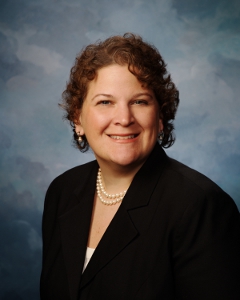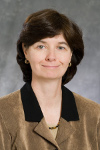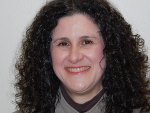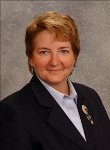In part II of this edition of Becker's Hospital Review's CIO roundtable, five hospital and health system CIOs discuss essential skill sets for new talent, developments in telemedicine, biggest goals and challenges ahead for their organizations.
Participants include:
Bobbie Byrne, MD, System Vice President and CIO of Edward Hospital (Naperville, Ill.) and Vice President and CIO of Edward-Elmhurst Healthcare (Naperville and Elmhurst, Ill.).
Susan Heichert, Senior Vice President and CIO of Allina Health (Minneapolis)
Maria Russo, Senior Vice President and CIO of Tanner Health System (Carrollton, Ga.)
Mary Anne Leach, Senior Vice President and CIO of Children's Hospital Colorado (Aurora)
Dave Garret, Senior Vice President and CIO of Novant Health (Winston-Salem, N.C.)
Question: What kinds of skill sets or talent do you seek for your hospital or health system's IT workforce in 2015?
 Dr. Bobbie Byrne.: While finding great people in every role is always a challenge, there are some significant skill sets that we continue to have a hard time recruiting. This includes some of the specific Epic technical skills as well as data warehousing and business intelligence professionals. For DW/BI, they do not necessarily even need to have healthcare experience, but I fear that the hardcore data-junkies we need are just not thinking about a job in healthcare. We have had to get creative.
Dr. Bobbie Byrne.: While finding great people in every role is always a challenge, there are some significant skill sets that we continue to have a hard time recruiting. This includes some of the specific Epic technical skills as well as data warehousing and business intelligence professionals. For DW/BI, they do not necessarily even need to have healthcare experience, but I fear that the hardcore data-junkies we need are just not thinking about a job in healthcare. We have had to get creative.
Susan Heichert: We're going to be looking for basic types of skills. I think these jobs are changing, and I hope they will because I want to see software become more intuitive — it would be great to make the computer more of a tool and less of an intrusion into the care process. We'll be looking for people with skills like critical thinking, adaptability, flexibility a positive attitude. Of course, they must also have analytical skills and a technology and business background is a plus. Additionally, we'll be looking for people with a sense of curiosity — people who push us to implement the things we can use to improve the way we deliver care to our patients.
 Maria Russo: Talent is the greatest asset of any organization. Without the right talent doing the right jobs, an organization will struggle. Critical thinking, analytical skills, organizational skills, knowledge of the health IT environment and products, and technical skills on troubleshooting are just some of what we look for in our talent. Any employee can learn the specifics of an application or technical device, but if individuals cannot think logically and critically and apply their knowledge to the situation that has appeared, then we will struggle to deliver good customer service to the organization. Ultimately we want critical thinkers with strong interpersonal skills who can provide good customer service.
Maria Russo: Talent is the greatest asset of any organization. Without the right talent doing the right jobs, an organization will struggle. Critical thinking, analytical skills, organizational skills, knowledge of the health IT environment and products, and technical skills on troubleshooting are just some of what we look for in our talent. Any employee can learn the specifics of an application or technical device, but if individuals cannot think logically and critically and apply their knowledge to the situation that has appeared, then we will struggle to deliver good customer service to the organization. Ultimately we want critical thinkers with strong interpersonal skills who can provide good customer service.
Mary Anne Leach: We are always going to need great analysts, people who understand clinical and business workflow and research needs, and who can transfer those needs to system design and implementation. We will also need more than we have of data scientists, data warehouse, business intelligence and mobile app developers, as well as creative and innovative professionals who can help us evolve how we deliver care. Additionally, we will always need people skilled and/or certified in Epic. We’ll always need technical professionals as well, as our technology infrastructure becomes increasingly complex.
 Dave Garret: We look for candidates who are team players and service-oriented. We prefer experience in the particular area for which they are applying. This would include skills and experience with telecommunications, servers, end user devices, storage, Epic, data warehouse/business intelligence, web development and many other areas of expertise.
Dave Garret: We look for candidates who are team players and service-oriented. We prefer experience in the particular area for which they are applying. This would include skills and experience with telecommunications, servers, end user devices, storage, Epic, data warehouse/business intelligence, web development and many other areas of expertise.
Q: What are your thoughts on the future of telemedicine? What does your organization have in place or plan to develop in terms of telemedicine, if anything?
Dr. B.: There are many service lines that are looking to use telemedicine for particular needs. We have a huge mission around behavioral health and will likely start there since there are so many underserved areas for behavioral health. I believe some patient needs will always require a face-to-face encounter with a physician. On the other hand, many clinical needs that might even be better and more conveniently served with a telemedicine visit or even a virtual (email messaging) visit. There has been great progress on this, especially in regards to figuring out the compensation for these visits. Our plans are to continue to expand our virtual visits and to add telemedicine this year.
S.H.: We have a relatively extensive telemedicine programs in place already. We have a large telestroke program, telepsychiatry and telemedicine programs for cancer genetic counseling and assessments and referrals. We are using telehealth in a variety of ways and we are continuing to expand how we're using it.
While the payment model is a bit of a challenge with telemedicine, as we move toward population health in a generation of digital natives, consumers will demand telemedicine and it will become commonplace. Population health will create new payment models for us and these will be favorable to telemedicine. There are so many advantages — it's effective and convenient.
M.R.: Tanner has implemented telemedicine for specific areas and service lines, such as behavioral health, in the ED and for neurology. Over time we will likely expand our capabilities for telemedicine. Long-term telemedicine will grow within the healthcare industry because it represents a way for more rural hospitals to have access to physician specialties that they would not be able to support in their environments. Also, with the impending physician shortage, telemedicine provides a way for bridging the gap to deliver more cost-effective patient care.
M.A.L.: We are in the process of deploying our second-generation technology platform for telehealth. It's meant to be easy to use. Telehealth should be as easy to use as Facetime, and we are in the process of deploying that now. We've seen enthusiastic adoption by both providers and patients and families.
Telemedicine isn't new, but what's new are the drivers around costs and population health that will allow us to leverage telehealth technology to deliver real value, as well as changing reimbursement models and legal constructs that are removing the barriers to wide telehealth use.
D.G.: Novant Health is engaged in telemedicine technologies today including stroke, psychology and others in discussion. While they may not be considered telemedicine by some, Novant Health is very engaged with patients through technology. Our patients can communicate with their providers via email and we also offer e-visits and video visits. The convenience is very much appreciated by our patients. We anticipate more aspects of telemedicine and more patients taking advantage of these new technologies.
Q: What is your biggest goal for 2015?
Dr. B.: Our goal is to expand and enhance our population health platform and tools. We are a Medicare Shared Savings Program Accountable Care Organization as well as a participant in many other risk-based contracts through Illinois Health Partners. IHP is a joint vendor between Edward Elmhurst Healthcare, many of our independent physicians and DuPage Medical Group (a 500-physician independent multi-specialty group).
We are doubling down on our investments in this area with an aggressive implementation of Epic Health Planet. We are also using the Epic Cogito Data Store in conjunction with our own legacy data warehouse. Our goal is to combine clinical data with claims data and be able to deliver very granular patient specific information, reminders and lists of needed care into the patient chart at the point of care. For me, it is the holy grail of data — take data sources from all over and make it actionable for patients seamlessly.
S.H.: Our charge is to provide tools to allow Allina to deliver on its mission of excellent patient care. My biggest goal is to really continue to provide the tools to continue to achieve that mission. We will focus on tools to develop our ACO and to support quality, outcomes, care coordination and interoperability.
M.R.: My biggest goal for 2015 is to make sure the systems we have implemented are ready for ICD-10 and to support the business through this transition.
M.A.L.: Our biggest goal is to accelerate the delivery of our analytic capabilities. We do already deliver a lot of dashboards and business intelligence tools, but it seems, at times, that we have a lot of data but not enough information.
D.G.: To make healthcare easier to access through technology, bring a remarkable experience to our patients and to ensure we keep the patient at the center of every decision.
Q: What do you anticipate will be your biggest challenge this year?
Dr. B.: When I started in IT, my biggest issue was creation of demand — convincing clinicians that technology was good for them. Now my biggest challenge is demand management. There is too much demand for technology and not enough time, money and resources. Prioritization is essential. Nobody likes to be told "no" and I hate to say no. I prefer to say "yes" (of course) or potentially "not now" (referencing the priority) or "yes, if" (as an invitation to partner with operations to clear barriers that currently exist for a project or technology).
S.H.: Our biggest challenge will be organizational focus and priority. We are in such a huge time of change that we need to be paying attention to so many things at once. To be successful, we need to identify what will be our major focus areas this year and the next for technology support. It's up to us to invent the future. We have the structure and people in place to manage these priorities.
M.R.: Continuing to stay one step ahead of the cyber criminal is the biggest challenge we face. It is a daunting task.
M.A.L.: I think we are always challenged to have enough staffing, capital investment and operating investment to do all of the things we want to do, that we know can make a difference in healthcare and in our organization.
In a cost reduction climate in the industry, the tension is between how much we should spend on technology versus other strategic investments. For most CIOs in healthcare, this is an ongoing question of governance and priorities. We won't be able to do everything we want, but we need to be able to deliver on our promise to provide value, as well as measure value and report that back to the business. We are going to have to make an increased investment in IT to realize the value and promise of health IT.
D.G.: Increased demand for services and shrinking reimbursements, resulting in our need for operational precision like healthcare has never seen before.

